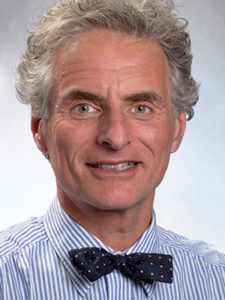
Medical education in the Untied States has undergone rapid changes during the past 10 to 15 years. What once was not given much thought by many is becoming seen as increasingly important and as a sought-after career path for more aspiring physicians, said Simon M. Helfgott, MD, Associate Professor at Harvard Medical School, Boston, MA.
Dr. Helfgott will speak during the ACR Clinical Practice session Medical Education Year in Review, which will take place from 1:00 – 2:00 pm Monday in Room W183a.
“Medical education has really evolved at a quick pace in the past decade,” Dr. Helfgott said. “At national meetings 10 or 15 years ago, you might see one or two posters or sessions that talked about medical education. As an educator, I’ve noticed a bit of a revolution in our thinking about medical education. Medical students are actually selecting medical education as a training option. Or they’re signing up to take part in medical education study groups. They’re tailoring their own training to incorporate medical education. We’re seeing relatively high volumes of students wanting to become medical educators. They not only want to see patients; they also want be educators. I think this is a good thing.”
Because of this shift, there’s more literature than ever on the topic, and Dr. Helfgott will highlight some of the most important findings from the past year during his presentation.
For example, he will discuss a study from the New England Journal of Medicine that looked at education outcomes and duty hour flexibility.
“This has been a hot topic,” he said. “How much leeway should we give our trainees? Do we impose strict limits? Is that conducive to learning? Or does that take away from learning? Now we have some nice data on that.”
He will also present papers looking at gender and feedback.
“This is particularly relevant for rheumatology,” Dr. Helfgott said. “Our specialty has undergone a rapid change. In my lifetime, we’ve seen the profession go from 90 percent male to about 60 female. We need to look at education in terms of gender equity.”
Other recent publications offer insight on teaching millennials.
“Are they really different?” he asked. “Or is it just on paper that they look different than older generations? There are some interesting editorial and opinion pieces on this topic that we should look at, because we should have this discussion.”
Finally, Dr. Helfgott will review a couple of papers looking at performance and behavior during medical school training and future outcomes.
“Can we predict who will fail based on performance in medical school?” he asked. “I tend to believe that the clues are often there early on, and we tend to ignore them or overlook them. There’s an interesting study that sheds light on this.”
Dr. Helfgott hopes to spur a broad discussion. He said it’s important for all physicians to think about medical education in a broad sense as something all doctors do.
“I hope this session will interest anyone involved in teaching — either in a classroom or at the bed side or curbside,” he said. “I think the literature that’s now available is useful for helping us open our minds to new ideas for helping our trainees and our rheumatology fellows become the best physicians they can be.”
